Get ready to discover the top worst states for seasonal allergies. I compiled the data from the Asthma and Allergy Foundation of America (AAFA) top allergy capitals article. From this article, I created averages to come up with the 35 states with the worst allergies in the U.S.
The AAFA report was compiled by considering the following:
- Spring and fall seasonal allergy scores
- Over-the-counter allergy medications purchased
- Availability of board-certified allergists in the local area
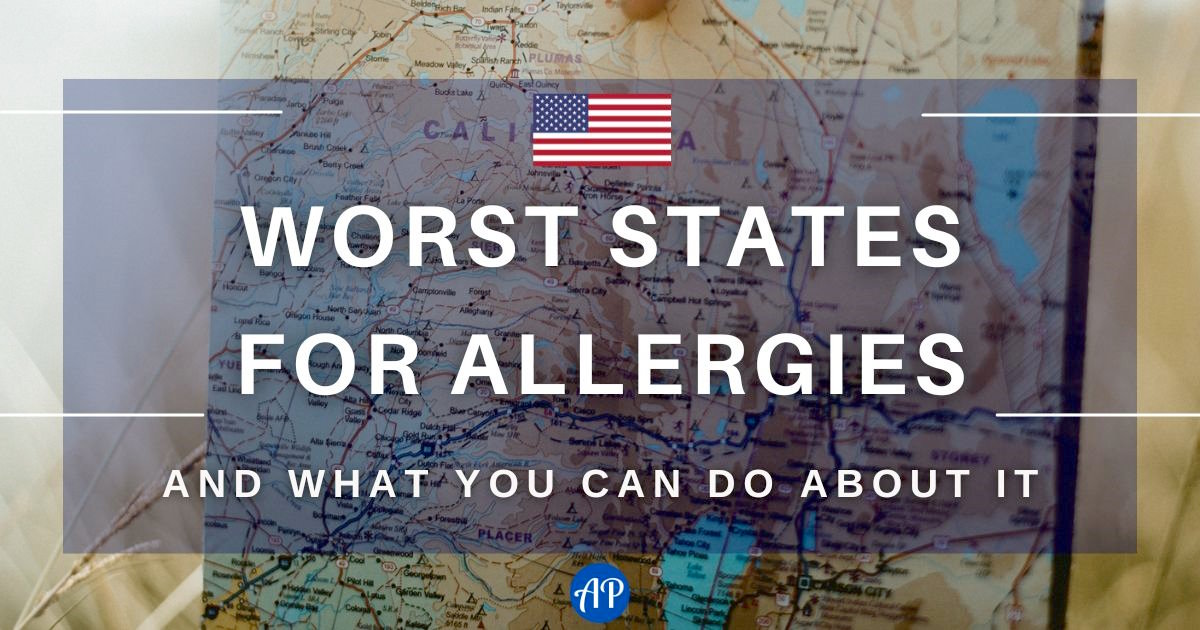
As an Amazon Associate, I may get compensation for qualifying purchases.
Table of Contents
Worst States for Allergies Grading Scale
The grading scale is 1-100. The higher the number, the worse the state is for allergies based on the reporting criteria above. To compile the worst states for allergies, I only included states that had an average state grade of 50 points or higher.
Heatmap of the 35 Worst States for Allergies
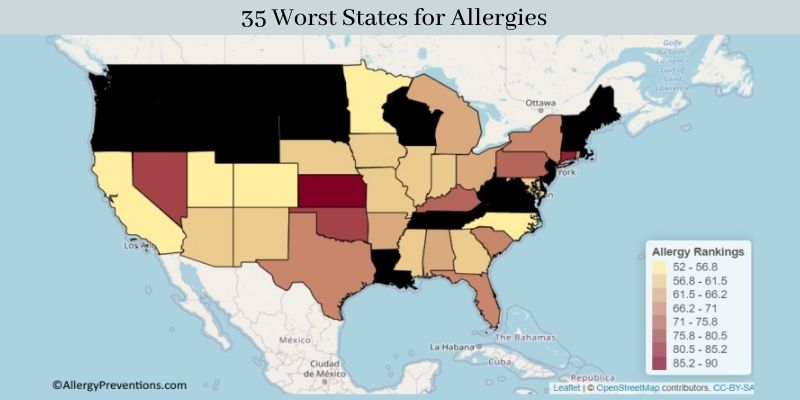
This heatmap is a good visualization to get an idea of what states and areas are not good for seasonal allergy sufferers. The states and areas that are blacked out, did not have an average score greater than 50 on the grading scale (not included as a “worst” state).
Ranking of the 35 Worst States for Allergy Sufferers
Seasonal allergies can be better or worse depending on where you live, and what you are allergic to. Here is a ranked list of the top worst states for seasonal allergy sufferers to live in:
- Virginia (93.93)
- Kansas (89.09)
- Connecticut (83.04)
- Oklahoma (80.38)
- Nevada (77.58)
- Kentucky (74.52)
- Pennsylvania (71.12)
- Rhode Island (67.57)
- New York (66.82)
- Texas (66.61)
- Florida (66.46)
- South Carolina (66.26)
- Michigan (66.18)
- Tennessee (64.99)
- Arkansas (64.1)
- Ohio (62.96)
- Massachusetts (62.29)
- Alabama (61.91)
- Louisiana (61.56)
- Missouri (61.23)
- Iowa (60.4)
- Illinois (60.26)
- Georgia (60.17)
- Mississippi (59.51)
- Indiana (59.16)
- Arizona (58.97)
- Washington D.C. (57.79)
- New Mexico (57.52)
- Nebraska (57.34)
- Maryland (56.91)
- North Carolina (56.44)
- Minnesota (55.85)
- Utah (55.36)
- California (53.22)
- Colorado (52.54)
Worst States for Allergy Sufferers Chart
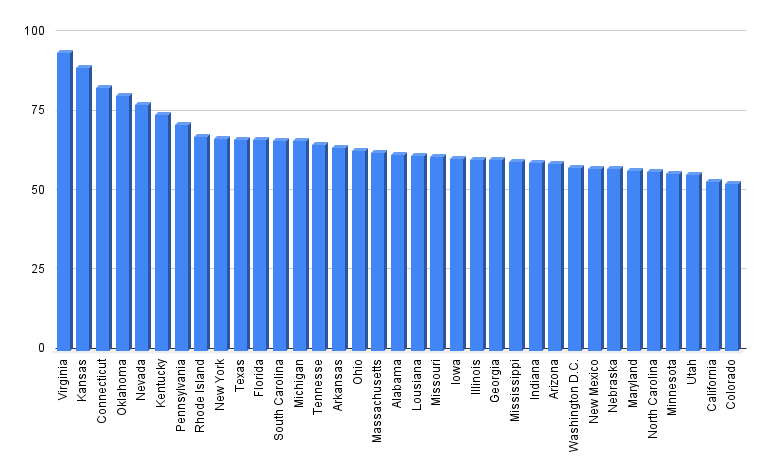
Overall, there is not a huge difference in the state’s rankings of the worst states for allergies. Virginia, Kansas, and Connecticut are ranked as the top 3 worst states for allergies. Although this state chart is busy, it does provide a great visual aid when looking at these states side-by-side.
Overall Worst State for Allergies

The worst state for allergies in the U.S. is Virginia. Virginia tops the AFAA charts with a rating of 93.93 out of 100. If you suffer from allergies and you live in Virginia, this may explain why. The runner-up for worst allergies is Kansas, which is followed by Connecticut.
Is Virginia on your list of potential places to move to? Have bad allergies? You might want to take these facts into consideration.
Preventing Allergy Attacks in the Worst States
Allergens are everywhere! We don’t have to be miserable all the time, there are steps we can take to improve our allergic reaction situation. Here are some quick pointers for allergy relief, regardless of where you live (even in the worst allergy states).
Avoidance of Allergens
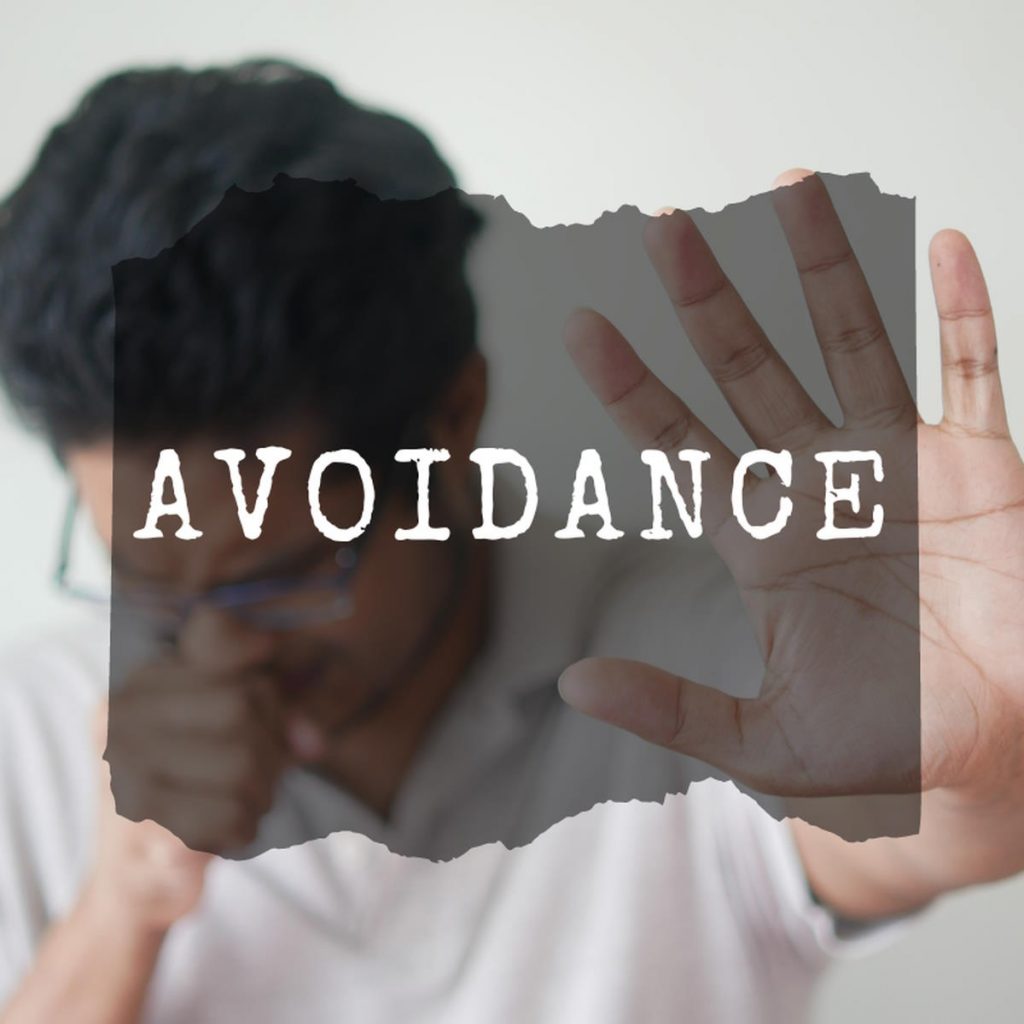
Knowing what you are allergic to is step 1. Once you know what triggers your allergy, the best way to prevent allergy symptoms is to avoid the trigger. If you don’t know what you are allergic to, it might be a good idea to start an allergy tracking sheet, let me explain.
Track when and where your symptoms occur(after eating, going outside, or visiting certain areas). Having a “database” of your symptoms may reveal a pattern and potential cause for your allergy symptoms. Share this information with your doctor to come up with a treatment plan.
Antihistamines

The use of antihistamines is typically the first treatment option for allergies. Common antihistamines are Benedryl, Claritin, and Zyrtec, which can be purchased over the counter.
Our bodies release histamine to respond to the “unknown” substance (or allergen). Antihistamines are Anti-Histamine, which can help your body calm down its response.
Cleaning to Remove Allergens
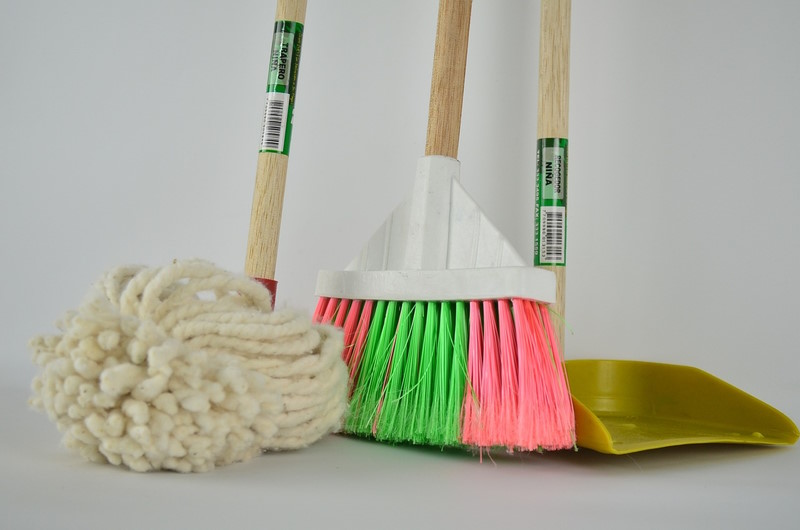
Preventing an allergic reaction while living in one of the worst allergy states, might be achieved with cleaning. Keeping high-traffic areas clean, as well as your bedroom can go a long way to limit allergy symptoms. Here are some areas around the house to consider cleaning regularly:
- All carpets and rugs
- Bedding to include pillows
- Blankets
- Frequent dusting of all horizontal surfaces
- Outdoor clothing brought into the house
- Window sills
Shower Away Allergens
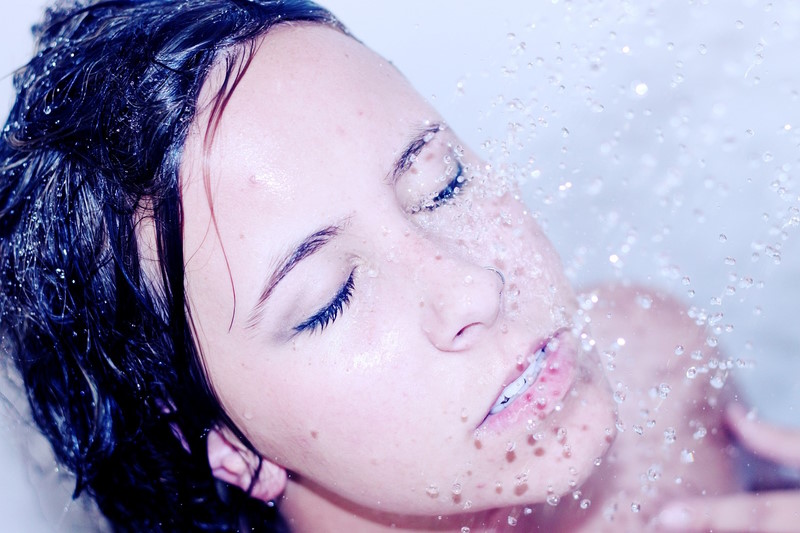
Showing at the end of the day, or when you come in for the day is a great allergen prevention method. Showering will rinse off the allergens (even those pesky “worst state allergens”). If you do not properly rinse them away, you may be miserable for days, and even contaminate your couch, sheets, pillow, etc. with the allergen.
When you are outside, pollen, mold, and mildew spores are all around you in the air. These hitchhikers get into your clothes, hair, and can also hang out on your skin.
Air Filter Replacement
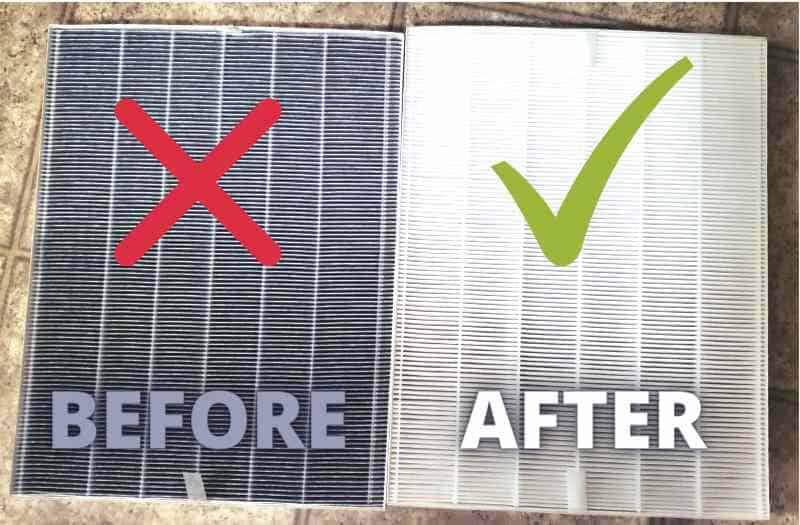
If you have central air or air conditioning in your house, there is an air filter. This filter is the first line of defense against dust and pollen becoming blown all through the house, so it is important to change your filter regularly.
Changing your HVAC filter often increases the heat/cooling efficiency as well. A well-maintained HVAC system will improve your indoor allergy symptoms, and save you money.
Keep Windows Closed During Peak Allergy Season
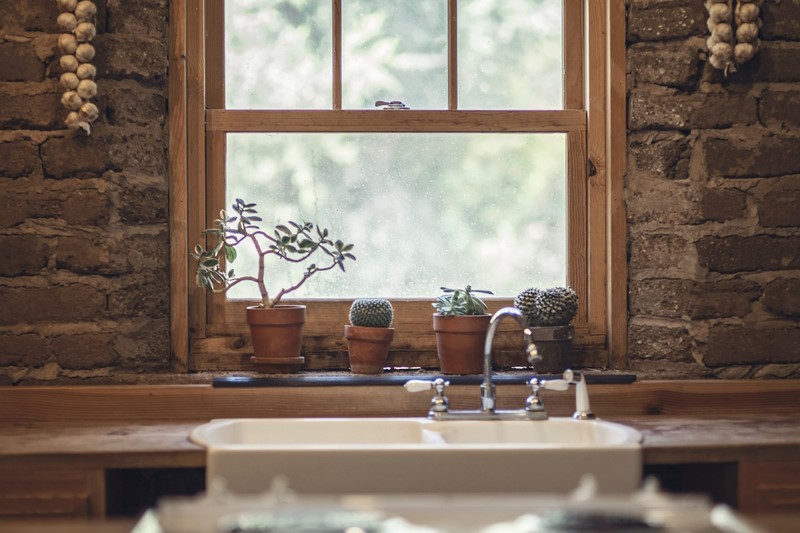
When a window is open, these allergens can easily enter the indoor environment and accumulate on surfaces such as furniture, carpets, and bedding. Closing the window can help prevent these allergens from entering and settling in the indoor environment.
In addition, closing windows can help filter the air that enters the room. Installing an air filter or air purifier can further reduce the amount of allergens in the indoor air.
Consider a HEPA Filter if You Live in a “Worst Allergen State”
A High-Efficiency Particulate Air Filter (HEPA) can filter over 99.9% of allergens from the air you breathe. If you have indoor or seasonal allergies, you will want to have a HEPA filter in your home.

Additionally, EPA.gov explains that indoor air quality can be 2 to 5 times worse than outdoor air quality. Removing the source of pollutants in your home and filtering them out is a great step to cleaner air inside your home.
What We Use
Our family immediately noticed a difference in air quality, and we rarely have to dust indoors. We have allergies and live in one of the top 35 states, so a HEPA filter is a must in our home. Actually, 4 HEPA filters are a must in our home.
WINIX 5500-2 (Large rooms)
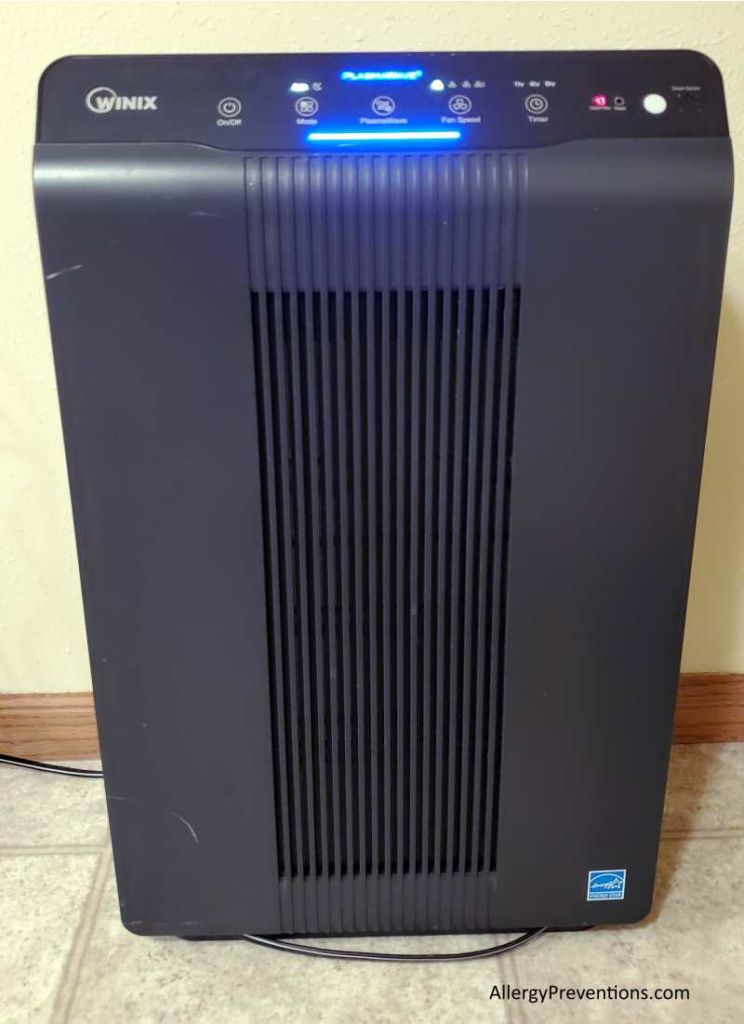
We use a WINIX® Air Purifier for our living room and kitchen area, and we absolutely love it. Check out the WINIX HEPA Air Purifier Review if you want to know the nitty-gritty of why we like it so much. Or you can also check out the thousands of reviews, or purchase on Amazon.
Levoit Core Mini (Bedrooms)
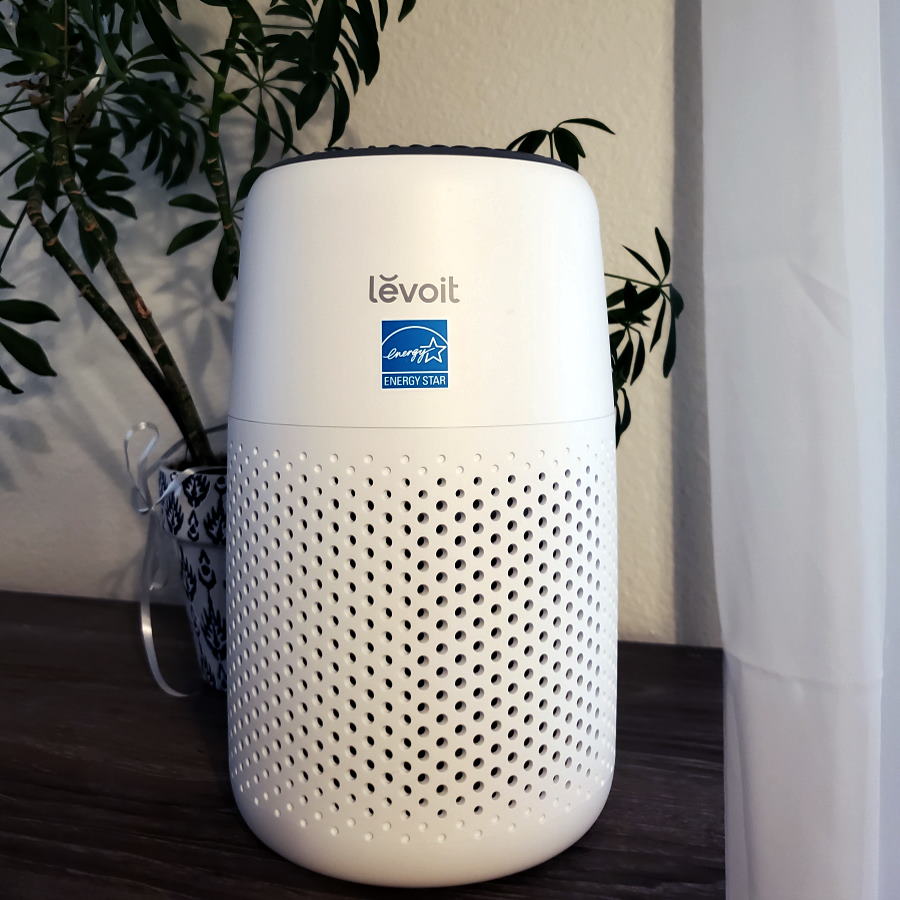
Each of our bedrooms has a Levoit Core™ Mini Air Purifier, which fits perfectly in each room. It does not take up a lot of space, they are super affordable and they keep our allergy symptoms at bay.
I haven’t done a review just yet, but we do not have any complaints (and we keep buying them). You can usually get the Levoit on Amazon for super cheap.
What is the worst state for allergies?
According to AAFA.org, the worst state to live in for allergies is Virginia.
Are allergies worse in different states?
Yes, allergies can be worse in different states. Weather patterns, plants, and animals vary from state to state causing some allergy sufferers to have better or worse symptoms depending on their location. The type of allergy also plays a role. For example, if you have a mold allergy, living in a highly humid or constantly moist environment may make your allergies flare up worse, compared to living in a dry environment.
Why are allergies so bad in Virginia?
Allergies are so bad for seasonal allergy sufferers in Virginia because of the variety and density of pollen-producing plants. During the spring months, most trees are blooming and release pollen. Summertime is when the grass season begins, and fall is the season for weeds.
Thoughts?
What are your thoughts on this list, do you think your state should be higher up? Let me know! Email: chris@allergypreventions.com
Up next you may be interested in:
Fall Allergies Survival Guide: Causes, Symptoms, Remedies, Preventions
